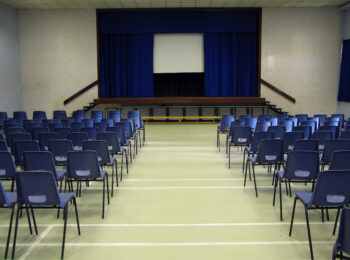 Religiously segregated schools and widespread bias towards the Christian faith throughout the education system represents a major threat to children’s rights, Northern Ireland Humanists has told a key body advocating for these rights in Northern Ireland.
Religiously segregated schools and widespread bias towards the Christian faith throughout the education system represents a major threat to children’s rights, Northern Ireland Humanists has told a key body advocating for these rights in Northern Ireland.
In response to a call for evidence from the Children’s Law Centre, Northern Ireland Humanists highlighted the various ways in which the current laws relating to religion and education violate rights laid out in the UN Convention on the Rights of the Child (UNCRC), particularly the right to freedom of religion or belief outlined in Article 14.
The evidence is being collected to inform the UN Committee on the Rights of the Child’s next report on how well the nations of the UK are meeting their obligations with respect to the Convention and recommends changes governments need to make to ensure children’s rights are realised. The last of these reports – known as the Concluding Observations – was conducted in 2016. In it, the Committee said the Northern Ireland Government should ‘actively promote a fully integrated education system and carefully monitor the provision of shared education… to ensure that it facilitates social integration’.
Despite this, most Protestants and Catholics are still educated apart from one another, with teaching staff and governing bodies also divided along faith lines. This represents a considerable barrier to social cohesion and threatens the freedom of religion or belief of pupils educated in this segregated system. What’s more, even in integrated schools (where pupils from the Protestant and Catholic communities are educated together with those from other backgrounds), the curriculum for religious education, drawn up by the four main Christian churches, contains very little on other world religions, and nothing at all about humanism.
In 2016 the UN Committee also recommended the repeal of compulsory collective worship in UK schools. However, four years on, no progress has been made, with the legal requirement to carry out an act of worship that is Christian in character still in place across the UK. This situation is worse in Northern Ireland because, unlike in England and Wales, sixth-form pupils do not have the right to opt themselves out of compulsory worship, leaving these pupils open to religious indoctrination long after they are sufficiently mature enough to make decisions about what they believe for themselves and in violation of the UNCRC.
Northern Ireland Humanists Coordinator Boyd Sleator commented:
‘The segregation and religious bias endemic in the education system in Northern Ireland represents a clear and ongoing threat to children’s rights, particularly the right to freedom of religion or belief.
‘What’s more, there is a great deal of robust evidence to show that diverse schools that educate pupils from a variety of different backgrounds alongside one another help to produce a more cohesive, tolerant society; something which is particularly necessary given Northern Ireland’s history of community conflict.
‘We very much hope that the evidence we have provided helps to shape the UN Committee’s approach during the next round of Concluding Observations. In the meantime, we call on the Government to work towards creating a single, inclusive system of education which does not privilege any one religion or belief perspective and fully respects the rights of all children, regardless of background.’
Notes:
For further comment or information, please contact Northern Ireland Humanists Coordinator Boyd Sleator at boyd.sleator@humanists.uk or 02890 029946
Read our response to the call for evidence
Read our most recent article on reforms needed to protect children’s rights in England and Wales
Read more about our work on:
Northern Ireland Humanists is a part of Humanists UK, working with the Humanist Association of Ireland. Humanists UK is the national charity working on behalf of non-religious people. Powered by over 85,000 members and supporters, we advance free thinking and promote humanism to create a tolerant society where rational thinking and kindness prevail. We provide ceremonies, pastoral care, education, and support services benefitting over a million people every year and our campaigns advance humanist thinking on ethical issues, human rights, and equal treatment for all.
